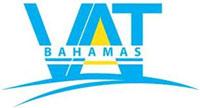 The government will set up a “revenue court” that would enable it to prosecute VAT and other revenue-related offenders without “getting tied up” in the general court system, Guardian Business can confirm.
The government will set up a “revenue court” that would enable it to prosecute VAT and other revenue-related offenders without “getting tied up” in the general court system, Guardian Business can confirm.
In a move which indicates the government is seeking to send a strong message to potential tax evaders, the court will be in place by the time the new taxation system, which brings with it a host of new obligations on behalf of businesses, comes into effect on July 1, 2014, a government VAT consultant has revealed.
The possibility of VAT fraud or non-compliance has been raised on many occasions as likely to impact government’s ability to successfully collect the revenue from VAT.
Meanwhile, Guardian Business can confirm that the government is set to hire “in excess of 100” accountants over the coming months in order to ensure it is fully staffed to meet the demands of its new VAT regime, which may require businesses to face audits every three to five years.
Businesses are set to be required to submit their VAT records and payments on a monthly basis, within 21 days of the month’s end.
These were just some of the details that emerged in a presentation by, and interviews with, two government VAT consultants who presented on the government’s VAT regime to the Bahamas Society of Engineers yesterday afternoon at Luciano’s.
Ishmael Lightbourne, a former PricewaterhouseCoopers executive, and Pauline Peters have joined the government’s VAT team on a consultancy basis.
Peters brings a wealth of VAT implementation experience to the government, having previously served as the Comptroller of Inland Revenue for the government of Grenada, until this summer.
She headed Grenada’s own VAT implementation team, when that Caribbean state implemented the tax in 2010.
Peters said the number of individuals to be hired as a result of VAT correlates directly to the number of anticipated VAT registrants – the roughly 4,000 businesses which have turnover of $100,000 or above.
The government is looking to hire a significant number of these staff by December, in order to have most trained and ready to engage in outreach in the business community – including one on one consultations with businesses to assess their readiness for VAT – by February. 2014.
“They have to be heavily accountancy based because they need to be able to decipher the accounts of the businesses. So when the advertisements go out you’ll see very high among the requirements is some kind of accounting qualification, CPAs, and so on. Right now the human resources committee is looking at finalizing the structure and the numbers associated with each of the functional areas, and what are the qualifications,” said Peters.
She noted that a big portion of the responsibilities of those who are brought on board will be carrying out the audit function involved in a VAT regime.
“Some administrations would want to audit the large part of their tax base every three years, and then the small or medium ones every four or five years. Because you look at where the risk lies with your revenues, and if you think the risk is in a particular area you may design your audit plan to cover those areas. And so the staff you hire is directly correlated to the number of registrants you have on board,” said Peters.
She added that the government will seek to reach out to businesses not only to check they are obtaining the correct revenue from them, but that they are aware of, and prepared to, comply.
“You want to be out there holding their hands to make sure they are filing correctly and they are keeping good records. So it’s not always about auditing you to make sure you have paid me sufficiently but just about whether you have structures in place that could allow you to voluntarily comply.
“We don’t want to be doing forced compliance all the time. You need to know how the businesses operate so you can give them the necessary advice that would allow them to voluntarily comply,” said Peters.
Lightbourne confirmed that VAT payments will have to be remitted to the government via an online system on a monthly basis, with registrants facing stiff penalties for failure to comply on time.
Businesses will have 21 days after the month is over to submit their VAT payment for that month, which is the net difference between the VAT they can demonstrate they paid on inputs, and the VAT they collected from customers to whom they sold goods or services.
“We are doing it that way because of the importance of getting the revenue, in terms of cash flow. And not only just that but also because of possible loss – you are making trustees of these people, and if they are holding onto your money longer than they need to you face all sorts of things. They may need to pay their rent, and so on. You want to hold people accountable on a regular, routine basis. They’re collecting government’s revenue,” he said.
Currently, VAT legislation, regulations and a “green paper” which highlights the key points of both of these hefty documents have been before Cabinet for three weeks, Lightbourne told the gathering of engineers and contractors.
“We are pushing as much as we can to get it out of there, because we know you need to see it,” said Lightbourne.
Alison Lowe
The Nassau Guardian
Published September 26, 2013


